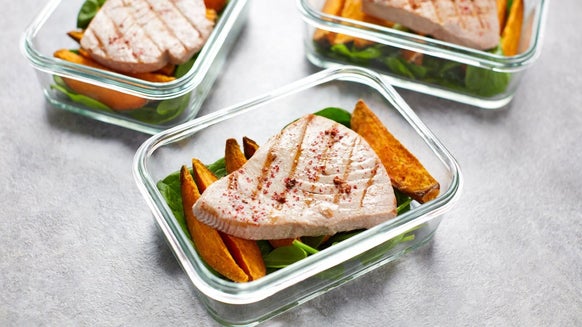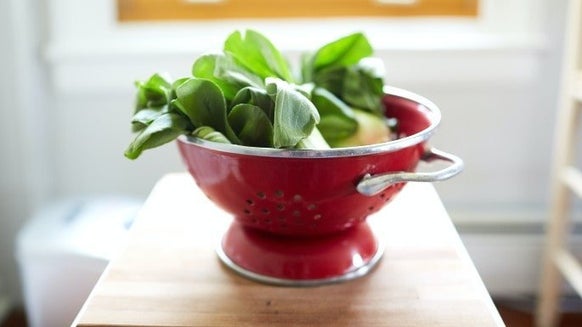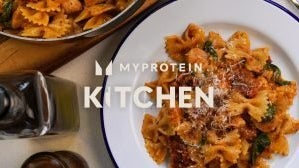12 Foods High In Potassium
Potassium is a mineral that’s essential for optimal health and plays a number of key roles in the body.1 Most notably, it helps maintain a healthy blood pressure, and potassium deficiency has been associated with an increased risk of strokes. This article offers 12 foods high in potassium to help you make sure you’re getting enough potassium.

12 foods high in potassium
1. Dried apricots
Dried apricots contain 602mg of potassium per serving of eight apricots. They’re also a great source of fibre, which is important for a healthy digestive system.2 Dried apricots are also a good source of iron and magnesium. Both of these are required for energy production, making dried apricots a good snack choice for a boost of energy.3
2. Cooked lentils
Lentils are a vegan/vegetarian-friendly protein source containing 9g of protein, as well as being one of the foods high in potassium, with 310mg for every 100g serving. They’re also an excellent source of selenium, which plays a key role in maintaining a functional immune system.4 Lentils are also very low in fat, making them a lean source of protein, carbohydrate and fibre.
3. Baked potato
A baked potato is an excellent source of potassium, with one medium-sized potato containing 990mg. A baked potato also contains approximately 4g of fibre. Baked potatoes are a high glycaemic carbohydrate source, making them a good option in a post-workout meal as they help to replenish glycogen stores.5
4. Kidney beans
Kidney beans are another vegan/vegetarian-friendly protein source, containing 7g of protein in every 100g alongside 280g of potassium. Kidney beans may also support your metabolism as they contain a good source of both phosphorus and manganese.3 Phosphorus also plays a key role in the formation of bones and teeth.6
5. Chicken breast
A lean protein source made up of a high percentage of essential amino acids — a medium-sized chicken breast fillet (120g) contains 38g protein and 552mg of potassium. Chicken breast is also an excellent source of B vitamins (especially B3 and B6), phosphorous, and selenium.
6. Banana
Bananas contain 208mg of potassium per serving and are also a high glycaemic carbohydrate source, making them a good post workout snack. Additionally, bananas are a good source of vitamin B6, which is important for metabolism and energy production.3
7. Milk (semi skimmed)
Half a pint of milk contains 418mg of potassium and provides a great blend of both protein (10g) and carbohydrates (12g). Milk contains casein protein, a slow-acting protein that can help reduce muscle-protein breakdown.7 Due to this it makes for a good pre-bed snack for those looking to build or preserve muscle.8 Milk also contains a high amount of calcium, which is important for healthy bones and teeth.9
8. Broccoli
In addition to potassium, broccoli is also a very good source of vitamin K, which helps the body heal from wounds and contributes to blood clotting.10 Broccoli also contains a high amount of vitamin C, which is also good forwound healing, and is important for healthy skin and bones and preventing scurvy.11
9. Salmon
As well as being one of our foods high in potassium, salmon is also an example of an oily fish containing healthy omega-3 fatty acids. Omega-3s have been linked to a wide range of health benefits, including improved cardiovascular health, insulin sensitivity and immunity.12 Salmon is also a good protein source, containing 23g in every 100g and is high in other important vitamins such as vitamin D, vitamin E and B vitamins.
10. Orange juice
A typical serving-sized (150ml) glass of orange juice contains approximately 265mg of potassium and a large dose of vitamin C. The sugar content of juices is quite high, so it’s best to be cautious with the quantity and stick to the recommended NHS serving size of 150ml.13
11. Cashews
Cashews are an excellent source of potassium, with 710mg per 100g. Due to the high-fat content, caution should be taken with the portion size if you are following an energy-restricted diet, with 10 whole cashews containing 128mg of potassium and 103kcals. Cashews are also a good source of magnesium, which plays a part in a wide range of biological roles including muscle function, blood pressure regulation and the maintenance of a healthy immune system.14
12. Apple
A medium-sized apple (175g) contains 174mg of potassium. Apples are also a source of fibre (1.2g per medium apple), minerals such as iodine, copper and chloride, and vitamins (including vitamin C and vitamin K).
Take home message
Potassium is an essential mineral that helps to regulate blood pressure and is needed for maintaining good health. It’s recommended that you consume 3500mg of potassium on a daily basis. There are plenty of tasty foods high in potassium, including meat, fish, vegetables, fruits, nuts, beans, and it’s also possible to increase intake through a potassium supplement.
READ THESE NEXT:
| calories | 0 |
| totalFat | 0 |
| totalCarbohydrates | 0 |
| protein | 0 |

Liam is a certified sport nutritionist with the International Society of Sport Nutrition and is enrolled on the British Dietetics Association’s Sport and Exercise Nutrition register. He has a Bachelor’s of Science in Sport and Exercise Science and is graduate of the ISSN Diploma in Applied Sport and Exercise Nutrition.
Liam is an experienced personal trainer, helping clients reach their health and fitness goals with practical, evidence informed exercise and nutrition advice.
In his spare time Liam has competed in numerous powerlifting competitions and enjoys hill walking, football and expanding his recipe repertoire in the kitchen. Find out more about Liam's experience here.
1. Turck, Dominique et al. “Dietary reference values for potassium.” EFSA Journal 14 (2016): 4592-4658.
2. Gill, S.K., Rossi, M., Bajka, B. et al. Dietary fibre in gastrointestinal health and disease. Nat Rev Gastroenterol Hepatol 18, 101–116 (2021). https://doi.org/10.1038/s41575-020-00375-4
3. Tardy AL, Pouteau E, Marquez D, Yilmaz C, Scholey A. Vitamins and Minerals for Energy, Fatigue and Cognition: A Narrative Review of the Biochemical and Clinical Evidence. Nutrients. 2020;12(1):228. Published 2020 Jan 16. doi:10.3390/nu12010228
4. Rayman MP. The importance of selenium to human health. Lancet. 2000 Jul 15;356(9225):233-41. doi: 10.1016/S0140-6736(00)02490-9. PMID: 10963212.
5. Burke LM, Collier GR, Hargreaves M. Muscle glycogen storage after prolonged exercise: effect of the glycemic index of carbohydrate feedings. J Appl Physiol (1985). 1993 Aug;75(2):1019-23. doi: 10.1152/jappl.1993.75.2.1019. PMID: 8226443.
6. Ods.od.nih.gov. 2022. Office of Dietary Supplements – Phosphorus. [online] Available at: <https://ods.od.nih.gov/factsheets/Phosphorus-HealthProfessional/#en1> [Accessed 10 January 2022].
7. Tang JE, Moore DR, Kujbida GW, Tarnopolsky MA, Phillips SM. Ingestion of whey hydrolysate, casein, or soy protein isolate: effects on mixed muscle protein synthesis at rest and following resistance exercise in young men. J Appl Physiol (1985). 2009 Sep;107(3):987-92. doi:
8. Kim J. Pre-sleep casein protein ingestion: new paradigm in post-exercise recovery nutrition. Phys Act Nutr. 2020;24(2):6-10. doi:10.20463/pan.2020.0009
9. Tai V, Leung W, Grey A, Reid IR, Bolland MJ. Calcium intake and bone mineral density: systematic review and meta-analysis. BMJ. 2015 Sep 29;351:h4183. doi: 10.1136/bmj.h4183. PMID: 26420598; PMCID: PMC4784773.
10. DiNicolantonio JJ, Bhutani J, O’Keefe JH. The health benefits of vitamin K. Open Heart. 2015;2(1):e000300. Published 2015 Oct 6. doi:10.1136/openhrt-2015-000300
11. Grosso G, Bei R, Mistretta A, Marventano S, Calabrese G, Masuelli L, Giganti MG, Modesti A, Galvano F, Gazzolo D. Effects of vitamin C on health: a review of evidence. Front Biosci (Landmark Ed). 2013 Jun 1;18:1017-29. doi: 10.2741/4160. PMID: 23747864.
12. Yashodhara BM, Umakanth S, Pappachan JM, Bhat SK, Kamath R, Choo BH. Omega-3 fatty acids: a comprehensive review of their role in health and disease. Postgrad Med J. 2009 Feb;85(1000):84-90. doi: 10.1136/pgmj.2008.073338. PMID: 19329703
13. nhs.uk. 2022. 5 A Day portion sizes. [online] Available at: <https://www.nhs.uk/live-well/eat-well/5-a-day-portion-sizes/> [Accessed 12 January 2022].
14. Al Alawi AM, Majoni SW, Falhammar H. Magnesium and Human Health: Perspectives and Research Directions. Int J Endocrinol. 2018;2018:9041694. Published 2018 Apr 16. doi:10.1155/2018/9041694







